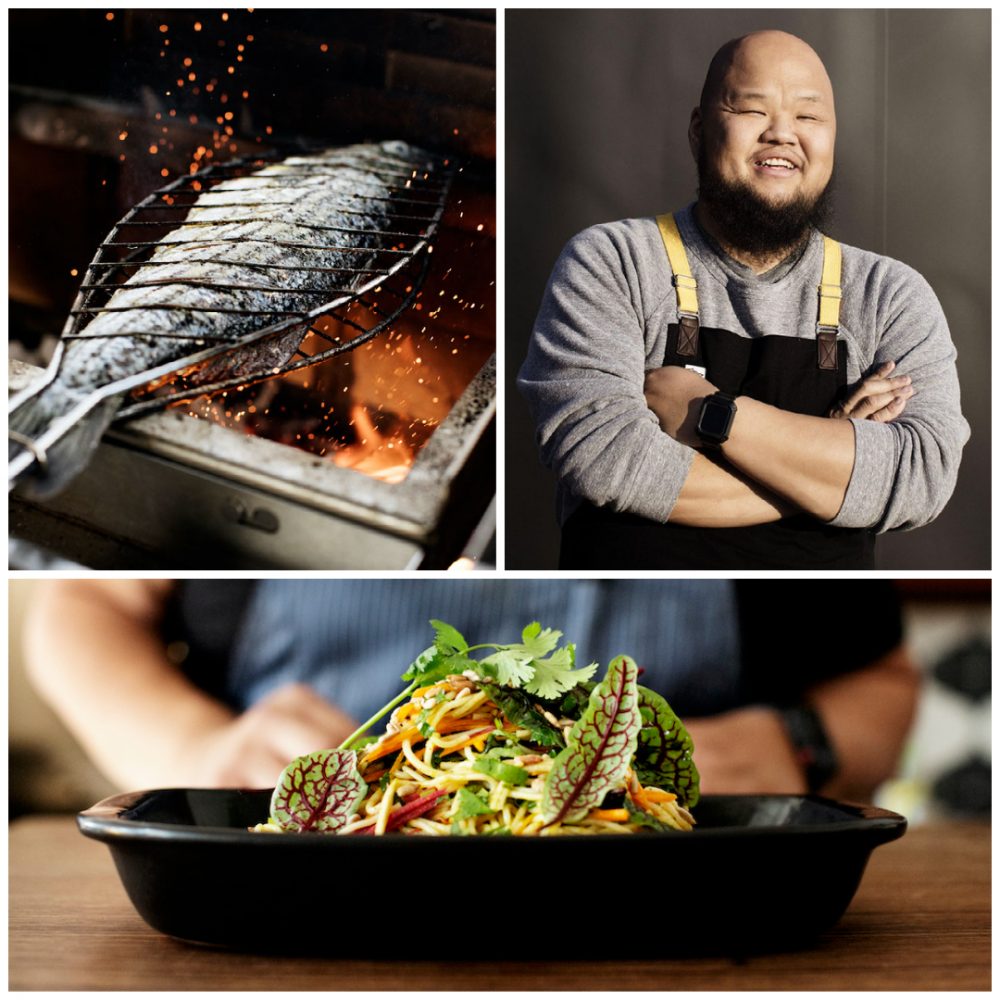“It's crazy to me, the fact that I can talk about food in an artistry type of way, and that when my parents talk about food, it's survival,” chef and Friend of Milk Street Yia Vang told Christopher Kimball in a recent interview on Milk Street Radio. Vang is the owner of Minneapolis's Union Hmong Kitchen pop-up and host of the Twin Cities PBS Originals show “Relish.” Later this spring, he'll open Vinai, a restaurant named for Ban Vinai, the refugee camp in Thailand where Vang was born.
Vang's parents are his guiding star—his culinary career an ode to their story.
“I tell people, when you realize that somebody gave up their life so that you can have a life, it changes the way you talk to people, it changes the way you interact with people, and for me, it changes the way I cook,” Vang says of his parents.
Get a glimpse of the chef’s family history and culinary influences in the excerpts below, and catch his full interview here on Milk Street Radio.
On his father’s journey to Ban Vinai refugee camp
“You leave your village, you trek through the jungles for two months, eating roots of trees, and just hoping that you can make it. So, you make it to the banks of the river, you cross the river and if you're alive and don't get captured. Then maybe you'll have a spot in the refugee camp.”
On tracing history through food
If you want to know the Hmong people, know our food, because our cultural DNA is intricately woven into the foods that we eat, and how we make our food. If you look at the kind of food we eat, and why we eat it a certain way, it's actually an echo of our history of where we been. So, for example, we have a rendition of pho and it shows our interaction with the Lao people, the Thai people, the Vietnamese people. The way that we farm, the way that we garden, the way that we grow our produce is from rubbing shoulders with all these different cultures in Southeast Asia. But then it's about how do you take that and forge that into your own culture?
On flavor balance
One of the things my mom always says is, the reason why we eat rice with everything is the rice is the balancer—it balances everything out. So nothing is super spicy, you don't want anything that's super fatty... that's why one of my favorite things is a slow roasted pork belly with that crispy skin on it. And then you eat that over sticky rice, and you literally take that pork belly and put it on top of that sticky rice, so then the fat from the belly actually goes in and the sticky rice absorbs it. And then, just to really get that full flavor, that's why you have the hot sauce. And then, to make sure everything washes down, that's why you have the vegetable that's usually in the broth. So every one of these four elements plays a role into bringing balance.
On Hmong comfort food
It's not like the mustard greens grown here. It's different. It's got a little bit of a sharper taste, like arugula...you braise it in pork bones, or neck bones. And that broth has the sharpness from the mustard green and that fattiness from the pork. Every Hmong kid will have had that. You ask every Hmong at the moment that broth hits their tongue: that, to them, is home.
On telling his parents story
I tell people that you run so far from who you are, that you actually run back to who you are. Yes I'm entrepreneur, businessman, blah, blah. But at the end of day, I just want to be a good storyteller. And that story is my parents’ story... Vinai, the brick and mortar restaurant that we're building, it's a love letter to my mom and dad.
Photo credits: The Restaurant Project
Quotes have been edited for clarity.
See here for more from Milk Street Radio, and join the conversation on Facebook, Twitter, Instagram and Pinterest.



